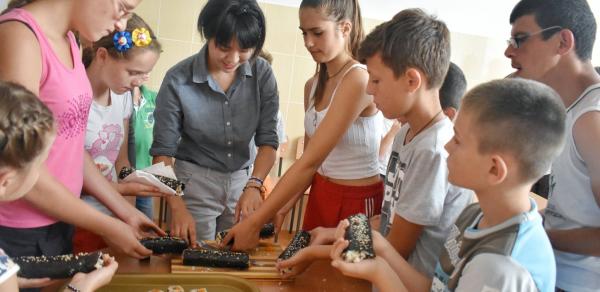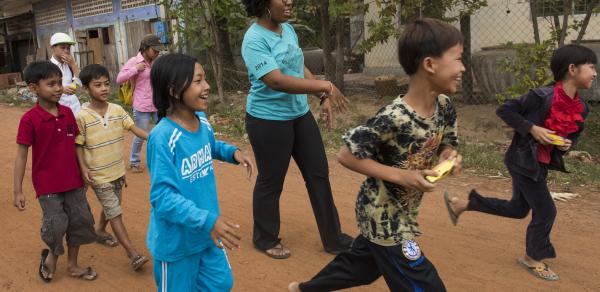Youth in Development
Teach lessons that last a lifetime. Youth in Development is the Peace Corp’s largest program area. Volunteers play an important role in creating links among schools, parents, and communities by working in elementary, secondary, and postsecondary schools as math, science, conversational English, and resource teachers or as early grade reading and literacy teacher trainers. Volunteers also develop libraries and technology resource centers.
If you choose the Youth in Development sector as your Peace Corps Prep focus you will need to take three courses from one of the following areas (the courses must all be in the same area; see list below):
- Social Work
- Counseling
- Community Development
- Developmental Psychology
- Human Development
- Family Studies
You will also need to complete 50 hours of related experience such as teaching or significant outreach and mentoring in a classroom, a community outreach organization, or in a formal tutoring capacity.
Examples of field experiences include student observation, student teaching, tutoring at the K-12 levels, or teaching in a youth outreach program. You may be able to complete this through your practicum coursework (Education, Social Work, etc.) or you may choose to arrange this on your own. Other volunteer opportunities for teaching exist through organizations such as the Department of Youth and Community Development, South Bronx United Boys Prep, Goddard Riverside Community Center, City Tutors, and Imani House, Inc. Both your PC Prep advisor and the Center for Professional Development can assist you in finding an appropriate opportunity.
Courses particularly relevant to service-oriented fieldwork are listed below. Students are encouraged to choose at least one course from the list below for inclusion in the three-course requirement.
- ANT 100 Understanding Our Worlds
- COM 200 Media and Culture
- EDC 316 Social Contexts of Early Childhood Education
- EDS 201 Social Foundations of Secondary Education
- GEG 102 People and Their Environment
- GEG 232 Social Geography
- GEG 275 Place, Race, and Racism
- PSY 213 Cross-Cultural Psychology
- PSY 235 Gender and Sexuality
- PSY 350 Prejudice and Social Identity
- SOC 100 People and Society
- SOC 202 Gender, Race, Ethnicity, and Class
- SOC 260 Class, Status, and Power
- SOC 328 Gender and Violence
- SWK 200 Introduction to Social Work
- SWK 305 Promoting Social Justice: The Intersection of Diversity and Disparities in Social Work
- SWK 306 Community Service Learning & Professional Development Seminar
- SWK 311, 312 Human Behavior in the Social Environment I, II
- SWK 322 Social Work Ethics and Human Rights
- SWK 370 Social Welfare Policy I: History, Trends and Fundamental Concepts

